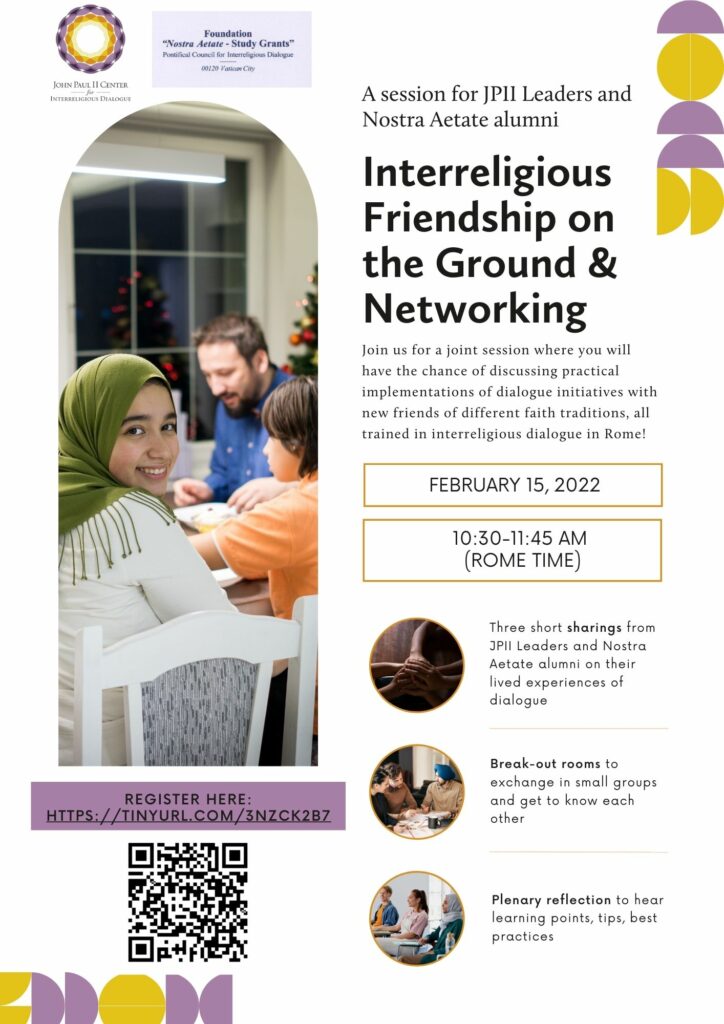On February 15, Russell Berrie Fellows and JPII Leaders took part in the “Interreligious Friendship of the Ground and Networking” online session to meet with Nostra Aetate Alumni.
The Nostra Aetate Fellowship is offered under the auspices of the Pontifical Council for Interreligious Dialogue to non-Christian students to deepen their knowledge of Christianity and dialogue through study at one or more of the Pontifical universities in Rome.
Both JPII Leaders and Nostra Aetate alumni are trained in interreligious dialogue in Rome and based worldwide. This session was an excellent opportunity for these interfaith leaders to meet online and exchange their experiences and initiatives. It was a good starting point for creating new contacts and collaborations in the interreligious field.
After a brief introduction about the John Paul II Center and Nostra Aetate Foundation, JPII Leaders and Nostra Aetate Alumni gave short presentations on their lived experience of dialogue. In particular, Sr. Gracy Joseph Vadakara (Cohort III, India) spoke about the importance of social action and the role of interreligious dialogue during the lockdown in India. She shared her participation in various conferences and writing a book chapter during the pandemic. Sr. Gracy emphasized, “Interfaith harmony is essential to the well-being of the world.”
Mustafa Cenap Aydin, an Alumnus of Nostra Aetate Fellowship and president of the Istituto Tevere in Rome, pointed out how we can put the message of the Gospel into life. Being a Muslim, he got a rare opportunity to teach Christianity, especially to Muslim audiences, in different parts of the world – Kenya, India, and European countries. “It is our ethical responsibility to go back to respective communities and to build bridges among people,” claimed Mustafa. Hadjiah Sarah Lucman Handang, another Nostra Aetate Alumna shared about her experience as Senior Education Program Specialist in the Philippines and about the importance of bringing understanding of religious diversity and dialogue there too.
Afterwards, during interaction in break-out rooms, participants representing different faith traditions discussed practical implementations of dialogue initiatives with their new colleagues. Finally, a plenary reflection concluded the event with highlights, learning points, and best practices.

